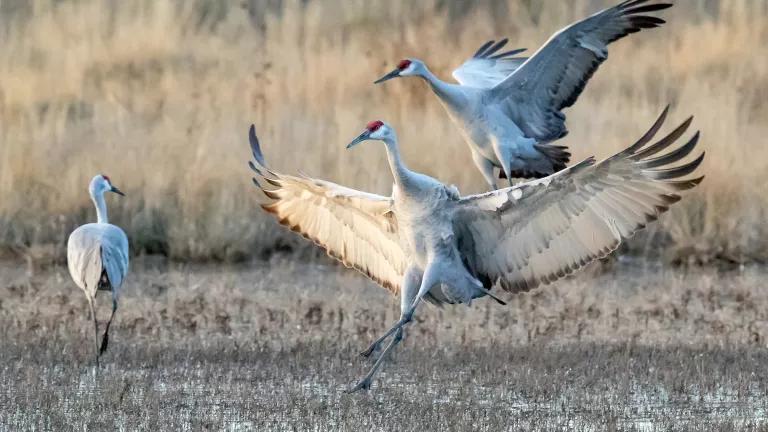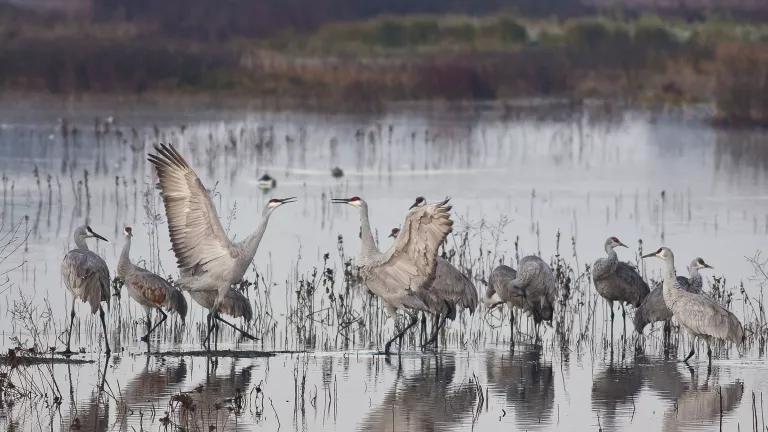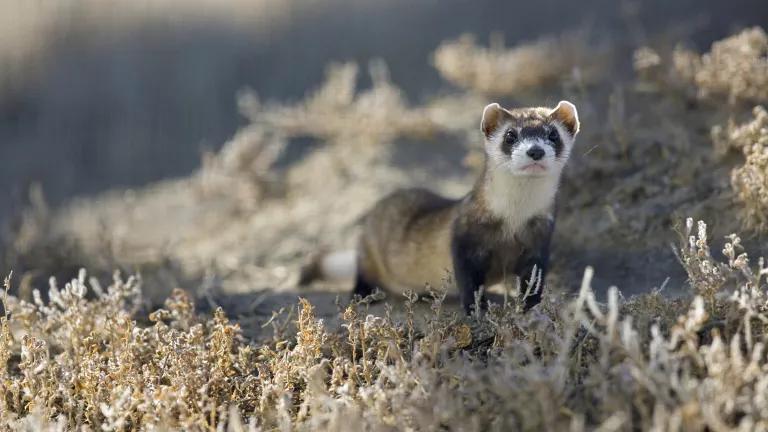NRDC Sues Over Gutted Migratory Bird Treaty Act

The Trump administration is once again trying to allow industry to cut corners, this time by setting bird-conservation efforts back decades.
NRDC, together with the National Wildlife Federation, National Audubon Society, Defenders of Wildlife, Center for Biological Diversity, and American Bird Conservancy, is taking the Trump administration to court for illegally dismantling the Migratory Bird Treaty Act (MBTA), which happens to be celebrating its 100th anniversary this year. The bedrock conservation law has helped bring bird species back from the brink and currently protects more than 1,000 types of birds, including eagles, hawks, egrets, hummingbirds, and owls.
But with the U.S. Department of the Interior’s recent reinterpretation of the MBTA, the law loses all its teeth. As it exists, the MBTA punishes both intentional and unintentional harm and killing of protected birds—through hunting and poaching as well as industrial activities like oil and gas development or pesticide use.
Under the Interior Department’s radical new interpretation, however, only those actions meant to purposefully harm birds will count as violations. Actions that knowingly and predictably will harm hundreds of thousands of birds are now allowed—a drastic step backward from the law’s original intent. “We cannot let Interior Secretary Zinke add one of the oldest and most important laws for birds to his list of anti-environmental giveaways, especially when birds are in critical need of protection,” says Katie Umekubo, a senior attorney in NRDC’s Nature program. “Drastically slashing the reach of the MBTA and removing accountability for preventable bird deaths is unacceptable.”
The revised law undoubtedly benefits industry, allowing them to cut corners instead of instituting best practices to reduce harm to birds. The government will no longer be able to penalize companies for preventable bird deaths or injuries, such as when they clear trees to build a pipeline during nesting season or leave toxic oil waste pits uncovered. And the government would no longer be able to punish companies like BP for bird deaths, whose catastrophic oil spill in 2010 killed a million birds and decimated Gulf ecosystems, resulting in $100 million in criminal fines that went directly into preserving wetlands and birds under the MBTA.



